Assessment of Chicago Mercantile Exchange Inc Appendix A: Activity in CME
A.1 OTC IRD
CME clears OTC IRD denominated in 21 different currencies, including Australian dollars. OTC IRD denominated in Indian rupee and Korean won were added to CME's clearing service during the assessment period. The notional value of cleared OTC IRD transactions outstanding with CME was US$15.1 trillion at end December 2017 (Graph 1), little changed since end December 2016. US dollar-denominated OTC IRD accounted for around 68 per cent of OTC IRD transactions cleared by CME in 2017. On average over the assessment period, 1 per cent of the total notional value of OTC IRD outstanding with CME was denominated in Australian dollars. CME conducted trade compression cycles for US dollar, euro, Japanese yen, Mexican peso and Brazilian real-denominated OTC IRD contracts over the assessment period. Compression runs reduce the notional value of trades outstanding.
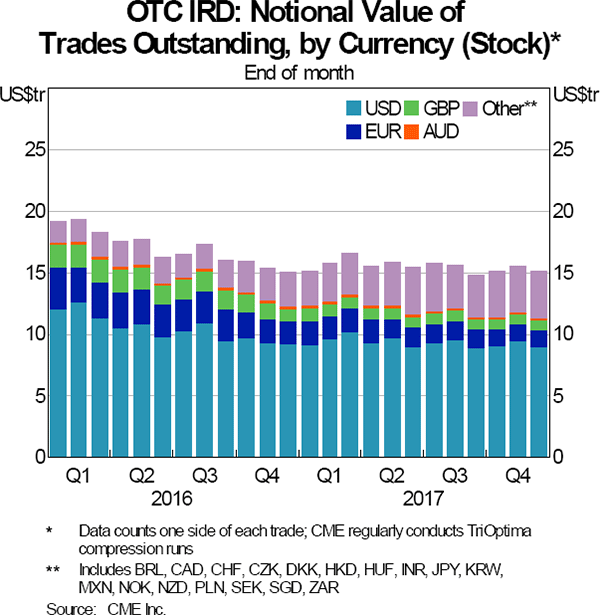
CME clears six types of OTC IRD: IRS, zero-coupon swaps, basis swaps, forward rate agreements, overnight index swaps (OIS) and swaptions. CME expanded its clearing service to include swaptions and Australian dollar-denominated OIS in 2016. Graph 2 and Graph 3 depict, respectively, notional value registered and notional value outstanding in CME's OTC IRS clearing service by product type. IRS constitute the largest component of the outstanding value of open trades.

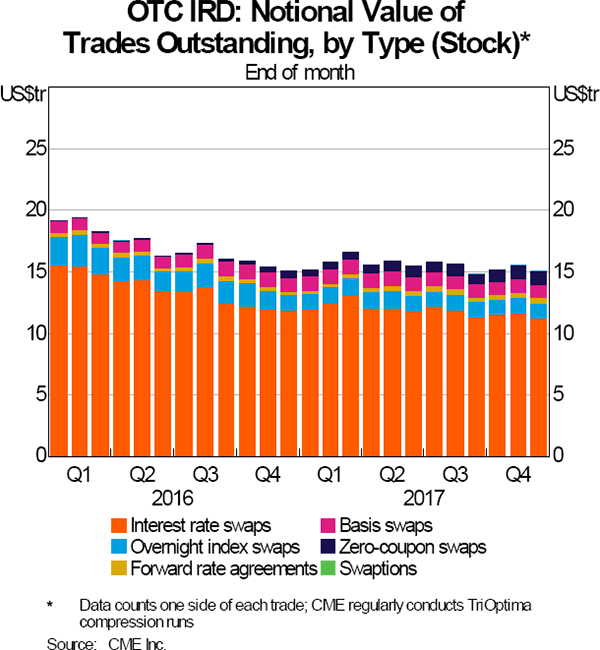
A.2 Exchange-traded Derivatives
As noted above, CME clears a range of exchange-traded derivatives through its Base service. CME is licensed in Australia to clear a subset of these products: non-Australian dollar-denominated IRD traded on the CME market or the CBOT exchange for which CME permits portfolio margining with OTC IRD – currently, US Treasury futures and US deliverable swap futures traded on the CBOT exchange, and Eurodollar futures traded on the CME exchange.[11]
The number of trades registered and outstanding in these products, by product type, is depicted in Graph 4 and Graph 5, respectively.
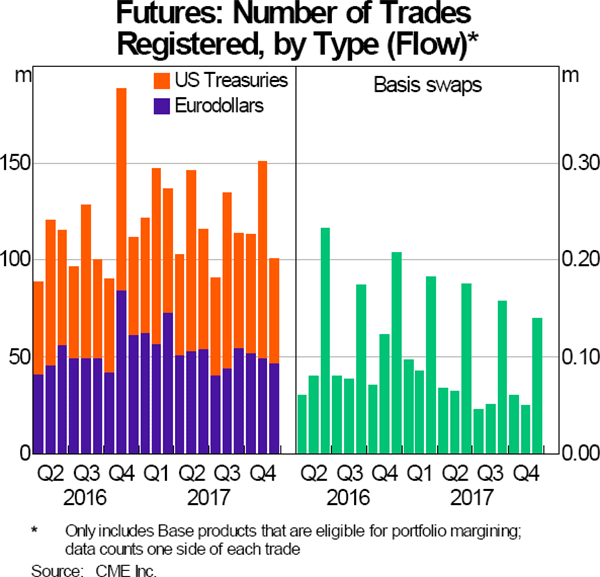
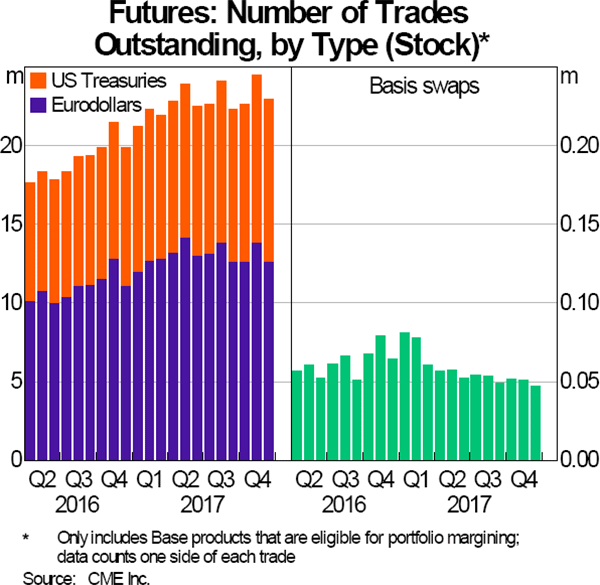
A.3 Australian Activity
CME does not currently have any direct Australian clearing participants. However, a number of Australian-based banks, superannuation funds and other institutional investors clear OTC IRD products indirectly through CME, as clients of direct clearing participants. At end December 2017, the notional value outstanding of indirect Australian participants' OTC IRD trades in all currencies was around A$89 billion (Graph 6).
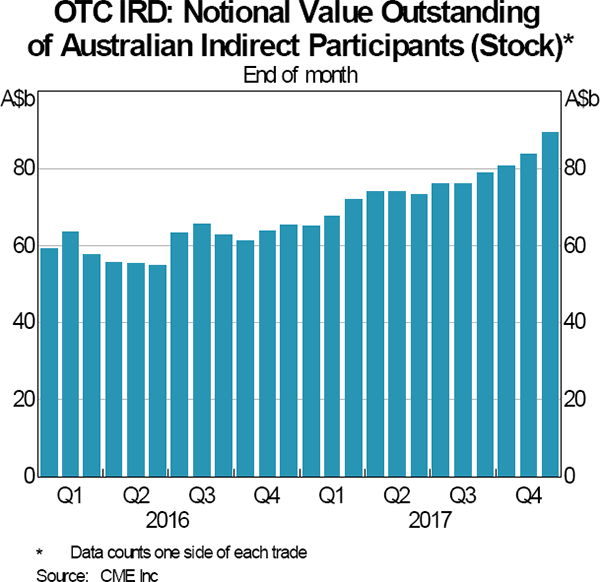
Graph 7 and Graph 8 depict the notional value of Australian dollar-denominated OTC IRD trades outstanding and registered with CME. At end December 2017, CME had around A$204 billion notional value of Australian dollar-denominated OTC IRD trades outstanding.[12] This represents around 1.5 per cent of the notional value outstanding of all centrally cleared Australian dollar-denominated OTC IRD trades (around A$12 trillion at end December 2017).[13]

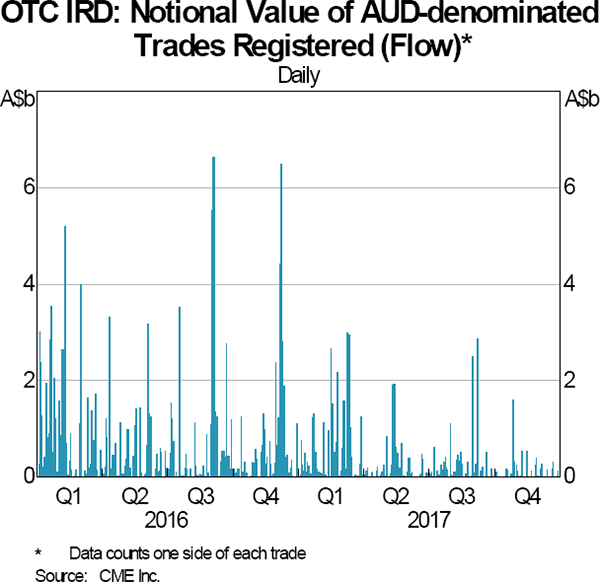
Footnotes
Portfolio margining is where margin calculations are made at the portfolio level rather than at the product level, allowing for reduced margin requirements to the extent that there are offsetting open positions across the portfolio of products. [11]
This figure counts one side of each trade. [12]
This is as a proportion of the Australian dollar-denominated OTC IRD trades cleared at ASX Clear (Futures), CME Inc. and LCH Limited's SwapClear service. These figures count one side of each trade. [13]